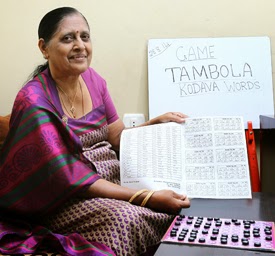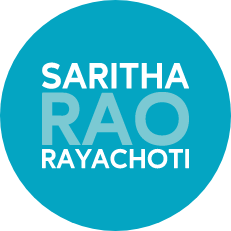
Early this year, when Sujatha Muthanna attended a social gathering in Mysore, little did she realise that she would be one among many who would go home that evening with an improved vocabulary and a finer understanding of Kodava Takk, the spoken language of the Kodava community.
Bestowed with the sobriquet, The Scotland of India, Kodagu or Coorg as it is commonly called, is a land blessed with lush forests, fertile soil, an abundant monsoon season and bountiful produce in the form of coffee, cardamom, pepper and many varieties of fruits. This is the land of clans and warriors with numerous Kodavas having served in the armed forces, including Field Marshal K.M. Cariappa and General K.S. Thimmayya. The Kodavas are renowned for their valour, respect for tradition and elders, a love for the outdoors and a deep emotional bond with their land.
Today, a major cause for concern within the community is the population figures of Kodavas both resident in Kodagu and outside. The number varies depending on the source and year of survey, but hovers at approximately one hundred thousand. There is also a marked departure from agriculture as a main occupation and migration from Kodagu to other cities and countries in search of better infrastructure and opportunities.
Kodava Takk, the language spoken by the community does not have a script, and many of the stories and songs in the language have been passed down orally. The Kannada language is used as a script even though this poses a challenge in conveying some sounds and expressions that are unique to Kodava Takk. Also, English words have crept into everyday vocabulary and the usage of the mother-tongue is gradually diminishing.
Many attempts have been made at an individual level by members of the Kodava community to help preserve the culture of their forefathers. One such member is seventy year old Achandira Chondamma Uthappa, based in Bangalore. Chondamma creates the crossword puzzle that appears in the community’s weekly newspaper, Brahmagiri, but a more interesting fact is that she has created an ingenious way to kindle interest in Kodava Takk.
“While those who live in Kodagu use Kodava Takk extensively, the city-dwellers from the community have forgotten many of these words that are unique to our language and tradition.” says Chondamma. “Those who have settled in the cities mainly speak English and the local language of that region. They visit Kodagu occasionally, and except in social gatherings, they do not get the opportunity to speak our language. Moreover, their children grow up not knowing the mother-tongue. This is when I realised that we can promote the language through simple games and Tambola.”
In 2012, Chondamma set about creating the Kodava Takk Tambola as a variation of the popular party game, Tambola or Housie-Housie. She hoped that even as people enjoyed playing a familiar party game, Kodava Takk words would get introduced into their everyday vocabulary.
The conventional game of Tambola or Housie-Housie is extremely popular in gatherings at clubs and social associations in India including the Kodava Sangha that Chondamma is a member of. It is similar to the American game of Bingo, itself derived from the Italian lottery Lo Giuoco del Lotto d’Italia.
The rules of Tambola are simple. This is a game of chance, and the only skill required is that of ticking off numbers on a ticket as they are being called out by the game host. Each ticket has fifteen unique numbers ranging anywhere from one to ninety. There is usually no cap on the number of tickets a person can play and no limit to the number of people who can play the game.
From a bag of numbered coins, the game host pulls out a random number and announces it, placing the coin on the corresponding place on a Tambola board. Those with tickets that have the number strike it off and the objective is to strike out as many called numbers as possible. There are prizes for completing specific sections, for instance, Jaldi Five is the first ticket that strikes out any five called numbers on a single ticket and there are prizes for the first ticket/s to complete each row. The grand prize goes to the first ticket to strike out all fifteen digits.
The Kodava Takk Tambola is only a minor variation on the conventional Tambola – the numbered board and coins remain the same, but the tickets are different. On the ticket, there are fifteen cells with unique numbers printed on them. The variation is that each numbered cell also contains a word from the Kodava language. So, each ticket essentially has fifteen kodava words on it.
For each session, the host can decided whether to call out the number as in the conventional game or choose to call out the Kodava word. For instance, the word corresponding to the number 2 is ‘ibbiny’ which is the word for ‘manji’ or ‘mist’. Those who are unfamiliar with the language, can still play the game based on the numbers being called out, thereby making the vocabulary an interesting byproduct of playing the game.
In the first section of her published book of tickets, along with instructions to play, Chondamma provides the list of numbers with the corresponding Kodava word, usually three- or four-lettered, that are not in regular use. She also provides useful cues about some words and the host can use these or create new points of discussion for each word or concept. For instance, the word corresponding to 38 is ‘kalakupya’ which is the name for a traditional jacket or blouse. The game host, in this case, could go into details of the traditional attire of the community.
Initially, Chondamma prepared a handwritten set of fifty tickets which were introduced at a social gathering within the Kodava community. Based on its success, the feedback and the appreciation she received, she published ticket books with one hundred tickets each. She has since distributed ticket books across associations in the city of Bangalore as well as in Mysore, where Sujatha Muthanna came across the game.
“The most striking aspect about Kodava Takk Tambola is that it is a form of experiential learning.” says Sujatha, “When a number or word is called out by the host, there is a brief conversation about the word and the concept it may represent. The host is, in this case, not merely an organiser of the game who reads out the word, but is also a sort of facilitator for learning the vocabulary. At the session I attended, the conversations that this game sparked off were so rich with detail and filled with anecdotes narrated by the elders and the host, that we were all clamouring for more rounds of the game.”
The possibility of using the Kodava Takk Tambola for language-learning is immense since a large group of people with one ticket each can effectively add a minimum of fifteen words to their vocabulary in the duration of one game session.
Chondamma hopes that the community will play Kodava Takk Tambola in many of its social gatherings and provide her feedback. She also believes that this game will benefit families, where under the pretext of playing a game, children can very quickly be taught words and traditional concepts that they may not be familiar with but which link them to the land, language and the cultural identity of their forefathers.
An edited version of this article appeared in the September 2014 issue of Harmony India’s online edition. Pic courtesy Harmony India (Prasad Durga).

